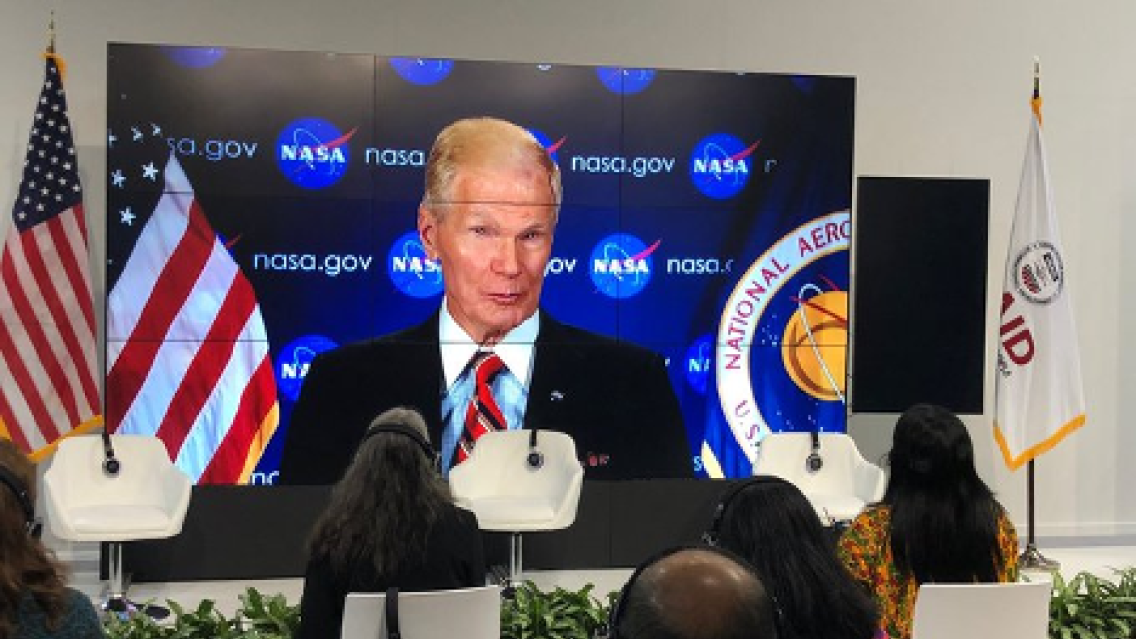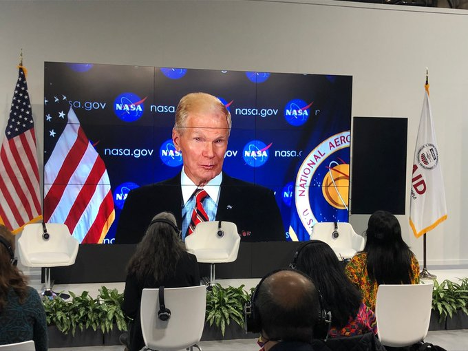SERVIR at COP26: Collaborating for Climate Action

Building on more than 120 years of combined experience of its two parent agencies – USAID and NASA – SERVIR joined the 26th UN Climate Change Conference of the Parties (COP26) in Glasgow to highlight work that betters both scientific understanding and human well-being.
Before and during the event, the White House released three international environmental initiatives featuring SERVIR’s work. On October 26, President Biden announced expansions to the U.S. Strategic Partnership with the Association of Southeast Asian Nations (ASEAN), including fostering climate resilience in Southeast Asia through SERVIR-Mekong. A few days later, the White House also introduced bold new targets for USAID as part of the President’s Emergency Plan for Adaptation and Resilience (PREPARE) – targets that include expanding SERVIR’s critical climate adaptation and resilience services into Central America. On November 3, the White House announced the Forest Data Partnership, to address the lack of reliable and accessible data on forests and lands, itself just one part of the new White House Plan to Conserve Global Forests.

NASA Administrator Bill Nelson announcing a new $3m gender-sensitive agriculture insurance
activity at the Our Climate Future is Female: Women and Girls Leading Climate Action session.
The following events highlighted SERVIR’s contributions to the goal of COP26 – uniting the world to tackle climate change:
- Global Network Enables Climate Change Resilience by Connecting Space to Village
Following welcome remarks from Senator Nelson, a SERVIR side session at the U.S. Center showcased SERVIR’s climate change efforts to the world stage. Presentations from SERVIR-Eastern & Southern Africa, SERVIR-Mekong, and SERVIR-Amazonia captured how SERVIR is bringing innovations from space to village in order to make them more resilient to the impacts of climate change. With this event, SERVIR introduced ClimateSERV 2.0, a new and improved web resource to provide easy-to-use geospatial data designed to suit the needs of climate researchers of all levels. - Our Climate Future is Female: Women and Girls Leading Climate Action
During a session that featured both USAID and NASA administrators, NASA Administrator Bill Nelson announced a $3m grant to SERVIR-Eastern & Southern Africa to support the development of gender-sensitive agricultural insurance programs. “It is NASA and USAID investments like these that provide climate solutions to support a more sustainable future for everybody,” remarked Administrator Nelson. The activity will support the integration of gender and Earth observations into the risk financing sector to build local and regional resilience to climate shocks. - Launch of Forest Data Partnership
USAID, the United States State Department, the World Resources Institute, Unilever, Google, NASA, and the UN Food and Agriculture Organization announced the Forest Data Partnership. The partnership will work to address the lack of reliable and accessible data on forests and lands, a key barrier to private investment in forests and restoration. This partnership will focus on key geographies including Southeast Asia, the Amazon Basin, West Africa and other regions with large potential for significant climate mitigation impacts through reducing deforestation and accelerating restoration. SERVIR’s work with land cover and land use change was presented by NASA Senior Climate Advisor Gavin Schmidt as a critical component of the new Partnership, itself just one part of the new White House Plan to Conserve Global Forests. According to Gillian Caldwell, USAID Climate Change Coordinator, “the partnership for open source data on forests [is] a major step to combating deforestation across supply chains.” - Mountains of Opportunity
Joining high-level delegates at the Mountains of Opportunity event, Deputy Special Envoy for Climate at the U.S. Department of State Jonathan Pershing reflected on the relevance of institutions like ICIMOD in centering cross-boundary programs like SERVIR-Hindu Kush Himalaya in international discussion. “It provides a venue to exchange information and knowledge about the opportunities both to increase resilience and adaptation but at the same time, to consider ways we can reduce emissions within the countries themselves. That is going to be essential,” he said.

